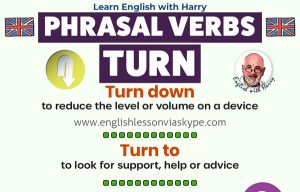Here you will learn IELTS speaking part tips.
Should you take IELTS? Is it difficult?
IELTS exam consists of four parts: Listening, Reading, Writing и Speaking.
Harry
IELTS Speaking Part Tips
Hi there, this is Harry and welcome back to my English lessons. Today I’m going to talk to you about IELTS, the English exams. Okay, so I’m going to talk to you in particular about the speaking part and give you some tips and hints around that.
So students take the IELTS exam for quite a lot of reasons. For example,
- to support your visa application
- to get into an international university
- to get a better job or promotion
So here are some hints as to how you can get yourself a really good score. So we’re going to talk today specifically about the speaking tasks and the speaking tasks are usually in three parts.
The first part is a sort of an introduction or a warm-up where they get you to talk about yourself.
The second part is a particular topic that the examiner will give you and you’ll be expected to talk on that topic for two to three minutes with him interrupting you from time to time with questions.
And then the third part will be some related questions about that particular topic. So you need to know what the topic is about. You need to be able to think and you need to be able to plan. So it’s hard to plan in advance because you don’t know what the topic is going to be. Neither can you ask the examiner to change the topic if you don’t like it. So you have to be able to think on your feet. But you can do a lot of preparation and advance by practising lots of different topics that other people have had in their exams.
Intermediate to Advanced English Marathon

INSANITY: doing the same thing over and over again and expecting different results.
Albert Einstein
- What you'll learn:
- better understanding of more complex grammar structures
- advanced English vocabulary words
- British & American slang
- perfect your listening skills through practing different accents
- This marathon is for you if you're:
- stuck at an intermediate English level
- tired of confusing explanations
- a mature student
- shy & introverted
So make sure you prepare.
Well, the first part should be easy because they’re just going to ask you questions about you. So who are you? Where do you come from? Where do you live? What work do you do? What are you studying? So personal or familiar issues, perhaps something to do with your family or your immediate family, or even the neighbours who live around you. Okay? So these are Fetty simple topics. But remember the objective of the examiner is to find out what you know about English. So it doesn’t really matter what you tell them, it’s how you tell, okay?
They want you to speak clearly.
They want you to speak at an even pace.
They want to hear the intonation in your voice.
They want to hear good pronunciation because if it’s poor pronunciation, they will deduct marks and they don’t want to hear somebody stuttering or stammering or hmm and ums.
IELTS Speaking Part Tips
So there has to be fluency in the way you speak. So we have to get you to practice all of those in each of these particular parts. So remember, these are the things that the examiner is going to be really looking out for. So let’s go over them.
Again, fluency to make sure that you can put sentences together. So he doesn’t want you to just say one half of a sentence or a very short answer, yes or no for each answer. You really need to have about two sentences to show that you have that fluency.
So number one, fluency, intonation. So how to rise and lower your voice at the appropriate time. You have to practice that so you don’t put too much intonation into your answers, but just enough where it’s appropriate. Oh my God. Yeah, intonation, pronunciation. Okay. You have to be able to pronounce clearly so he can hear the words.
For example, when the a word ends in -ED, you get the correct stress. I walked to work and not walking or something else. You lose marks definitely for poor pronunciation.
And if you’re speaking too fast or too slow, then he’ll also pull you up on that. And if you’re using poor grammar, then you’re going to lose marks as well.
So they’re the four areas that you really, really want to focus on. So the first part, as I said, is about your personal issues that should be relatively easy because you can prepare in advance.
Make sure you don’t learn it by heart because the examiner will recognize that he doesn’t want just to hear blah, blah, blah, blah, blah, something that you’ve learned by heart. Again, this is where intonation comes in. You have to have some break in it, some, up and down, undulation in your voice to show that it’s not learnt by heart.
Okay? So this is really, really important when it comes to grammar. What the examiner will be looking for is vocabulary. He’d be looking to see that you have a breadth of experience, that you can use different words. So please avoid duplicating words using the same word over and over again. So when you’re practising, try and use different words, other words that have the same sort of meaning. And with practice, you can improve that. Okay?
When you’re talking about grammar, you want to introduce aspects like a few phrasal verbs. Don’t overuse them because sometimes there’s a tendency for people to want to put phrasal verbs into every sentence. If it’s not natural, don’t force it. Okay? So, but try and pick out a few phrasal verbs that you can use in different topics.
Also when you’re talking about grammar, try and introduce when you’re using adjectives, comparatives and superlatives, because again this will demonstrate very clearly to the examiner that you understand that aspect of grammar that you’re able to say or the best of the worst or the greatest or as good as, as big as.
So you’re using comparative and superlatives again to demonstrate your use of grammar. Okay. As I said, you’re going to look at three different parts of the IELTS speaking.
Part 1 – is about you or things close to you.
Part 2 – is going to give you a minute to prepare. So make sure you use the minute, write notes and key points that you want to make and that you want to bring out in whatever answers that you give. So prepare well for that. Okay.
He’ll give you the topic. So let’s say it’s about gardening. So you need to write down on paper, it’s about gardening. You might not like gardening, so you can speak negatively. As I said before, it’s not important what you say. It’s important how you say it, but remember if you’re going to speak negatively about something, make sure you have points to make.
For example, if it’s gardening, but I don’t really like gardening. I don’t like gardening because I don’t have a garden. I don’t have a garden because I live in an apartment and, but my parents had a garden when we were young and they like to work in it so you can build it around and move the question or the topic to something that you’re comfortable with.
As I said before, you can’t change the topic. You can’t get the examiner to change it, but you can with a little bit of practice, push on, move the type of questions to something that you’re more comfortable with or you’re more familiar with. But as I said, use that particular minute. Prepare different things. If you’re talking about gardening, you can talk about different types of gardens. You can talk about flowers or plants or bushes or you could cultivate a garden to grow vegetables.
And then you can talk about the commercial aspects of it. You can give whatever you grow as a present to people. Or you can help to boost your own income by selling the products. Or reduce your costs by eating what you grow and the garden.
So there are different ways that you can bring the topic around to something that you’re comfortable with. So the third part of this particular aspect of the speaking exercise, the examiner is going to ask you more general questions related to the particular topics. So if we take our topic of gardening, he might start asking you questions about do you think every house should have a garden? Or he might ask you, what do you think about city gardens? And a city garden might be a plot of land that is shared by people in a communal space or indeed in many.
Now you’ll see gardens on top of all the buildings. And it’s a way of trying to introduce growth and plants and greenery into a city to help with the whole issue of climate control and everything else. So there’ll be related questions that he might ask you. So you need to be prepared by that. And again, when you’re given an answer, don’t just give a yes or no. Okay?
Don’t give very short answers, don’t go too long because that’s when you tend to make mistakes. But with any answer, this should be at least two sentences in it. And the reason why is that when you give the examiner an opportunity to identify mistakes or weaknesses, offer you to show your strengths in relation to your vocabulary, the grammar that we mentioned before, and all those aspects about proper intonation and proper pronunciation. Okay? So just to recap on that, then they’re going to be three parts to the speaking.

There’s going to be the first part, which is really a warm up for you to introduce yourself, who you are, what you do, where you live, so the who, what, where and when type of questions. And you should be able to answer those quite easily. The second part will be a topic that you have no control on, but you’ll get one minute to prepare. So make sure you use that minute well, write down comments or words that you think are associated with it so that you can push the type of questions into the areas that you feel most comfortable with and you’re going to have to talk them for two to three minutes on that particular topic. So here’s an opportunity for you to use good phrases and expressions in my opinion, or I believe, or frankly or honestly, so you can introduce those into the the conversation.
Make sure you use good grammar. Make sure you use superlatives and comparatives. Make sure you get those pronunciation sounds right. Don’t speak too quickly. Don’t speak too slowly and try to provide the Ums and Ahs. It’s, it’s a bit difficult to avoid them completely and you can’t get obviously 100% but if you want to get good marks, these are the sorts of things that you have to look at.
And then the third part are going to be related questions to the topic that you’ve already been discussing for two or three minutes. And again, when you give those answers, make sure you elongate the answers a little bit to try and get two or three sentences for each response. So it gives you the opportunity to demonstrate control of vocabulary. Don’t duplicate words and try and practice what you’ve learnt. Okay. Thanks for listening.
More Information
For more information on English phrasal verbs, English collocations and English vocabulary words and phrases, check the following link:
English Collocations with EDUCATION
10 Ways to Say I’M TIRED in English
If you’d like to get familar with the IELTS exam structure, or to register for IELTS, please visit the official website.
You will love these English lessons

Phrasal Verbs With Turn
Learn phrasal verbs with turn. List of phrasal verbs with turn. Detailed explanations and practical examples. Learn how to use


Better Ways To Say I don’t Like It
Learn better ways to say “I don’t like it” in English. I try to help you to get a better


Idioms related to Feelings and Emotions
Here you will learn 10 idioms related to feelings and emotions. Lose your temper, have butterflies in your stomach, down